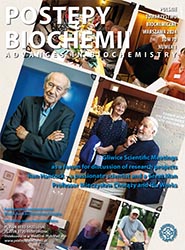The transcriptome of acute dehydration in myeloid leukemic cells
DOI:
https://doi.org/10.18388/pb.2021_507Abstract
Human myeloid leukemia cells (HL-60/S4) exposed to hyperosmotic stress with sucrose undergo dehydration and cell shrinkage. Interphase chromatin and mitotic chromosomes congeal, exhibiting altered phase separation (demixing) of chromatin proteins. To investigate changes in the transcriptome, we exposed HL-60/S4 cells to hyperosmotic sucrose stress (~600 milliOsmolar) for 30 and 60 minutes. We employed RNA-Seq of polyA mRNA to identify genes with increased or decreased transcript levels relative to untreated control cells (i.e., differential gene expression). These genes were examined for over-representation of Gene Ontology (GO) terms. In stressed cells, multiple GO terms associated with transcription, translation, mitochondrial function and proteosome activity, as well as “replication-dependent histones”, were over-represented among genes with increased transcript levels; whereas, genes with decreased transcript levels were over-represented with transcription repressors. The transcriptome profiles of hyperosmotically-stressed cells suggest acquisition of cellular rebuilding, a futile homeostatic response, as these cells are ultimately doomed to a dehydrated death.
Downloads
Published
License
Copyright (c) 2023 David B. Mark Welch, Travis J. Gould, Ada L. Olins, Donald E. Olins

This work is licensed under a Creative Commons Attribution 4.0 International License.
All journal contents are distributed under the Creative Commons Attribution-ShareAlike 4.0 International (CC BY-SA 4.0) license. Everybody may use the content following terms: Attribution — You must give appropriate credit, provide a link to the license, and indicate if changes were made, ShareAlike — If you remix, transform, or build upon the material, you must distribute your contributions under the same license as the original. There are no additional restrictions — You may not apply legal terms or technological measures that legally restrict others from doing anything the license permits.
Copyright for all published papers © stays with the authors.
Copyright for the journal: © Polish Biochemical Society.




